News
-
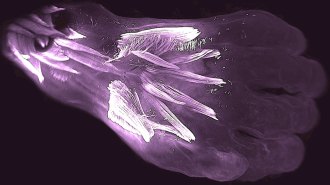 Humans
HumansHuman embryos have extra hand muscles found in lizards but not most adults
In developing human embryos, muscles are made, then lost, in a pattern that mirrors the appearance of the structures during evolution.
-
 Earth
EarthHurricane Lorenzo hit Category 5 farther east than any other storm
Lorenzo reached category 5 status on September 28, making it the northern-most and eastern-most category 5 hurricane ever recorded in the Atlantic.
By Sofie Bates -
 Humans
HumansPersonalized diets may be the future of nutrition. But the science isn’t all there yet
How a person responds to food depends on more than the food itself. But what exactly is still a confusing mix of genes, microbes and other factors.
-
 Space
SpaceNASA’s new black hole visualizations showcase how gravity warps light
Images from computer simulations highlight how the extreme gravity of a black hole tampers with light rays emanating from its accretion disk to create weird patterns.
-
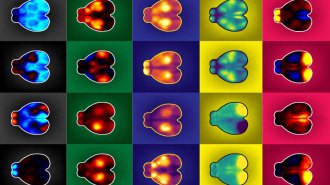
Mice fidget. Those motions have big effects on their brains
Unnecessary motion has a profound and widespread effect on nerve cell behavior in mice.
-
 Humans
HumansVaping-related illness reports have surged to 805 from 46 U.S. states
Twelve people have now died from lung injuries tied to e-cigarettes, the U.S. Centers for Disease Control and Prevention finds.
-
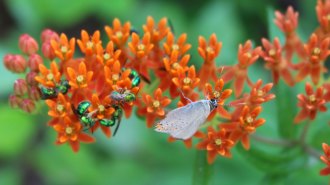 Life
LifeConnecting our dwindling natural habitats could help preserve plant diversity
As pristine habitats shrink worldwide, a massive, 18-year experiment suggests that linking up what's left with natural corridors could help ecosystems retain plant diversity.
-
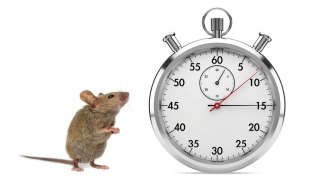 Health & Medicine
Health & MedicineA mouse’s metabolism may follow circadian rhythms set by gut bacteria
While animals’ circadian clocks control functions from sleep to hormone release, gut bacteria dictate when mice’s small intestines take up fat.
-
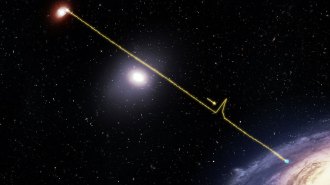 Space
SpaceThis fast radio burst shined a light on a galaxy’s mysterious gas halo
A lucky alignment let astronomers probe one galaxy’s diffuse gas using a brief, bright blast from a more distant galaxy.
-
 Health & Medicine
Health & MedicineRockland’s measles outbreak is over, but U.S. elimination status is still at risk
Officials in Rockland County in New York announced that their measles outbreak, which began October 1 of last year, is finally finished.
-
 Life
LifeLosing genes may have helped whales’ ancestors adapt to life under the sea
Jettisoning genes tied to saliva and the lungs, among others, could have smoothed ancient cetaceans’ land-to-water transition 50 million years ago.
-
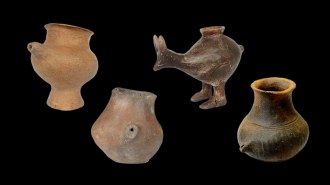 Archaeology
ArchaeologyBaby bottles may go back millennia in Europe
Europe’s early farmers used spouted vessels to wean infants, an analysis of residue from animal milk left in the containers suggests.
By Bruce Bower